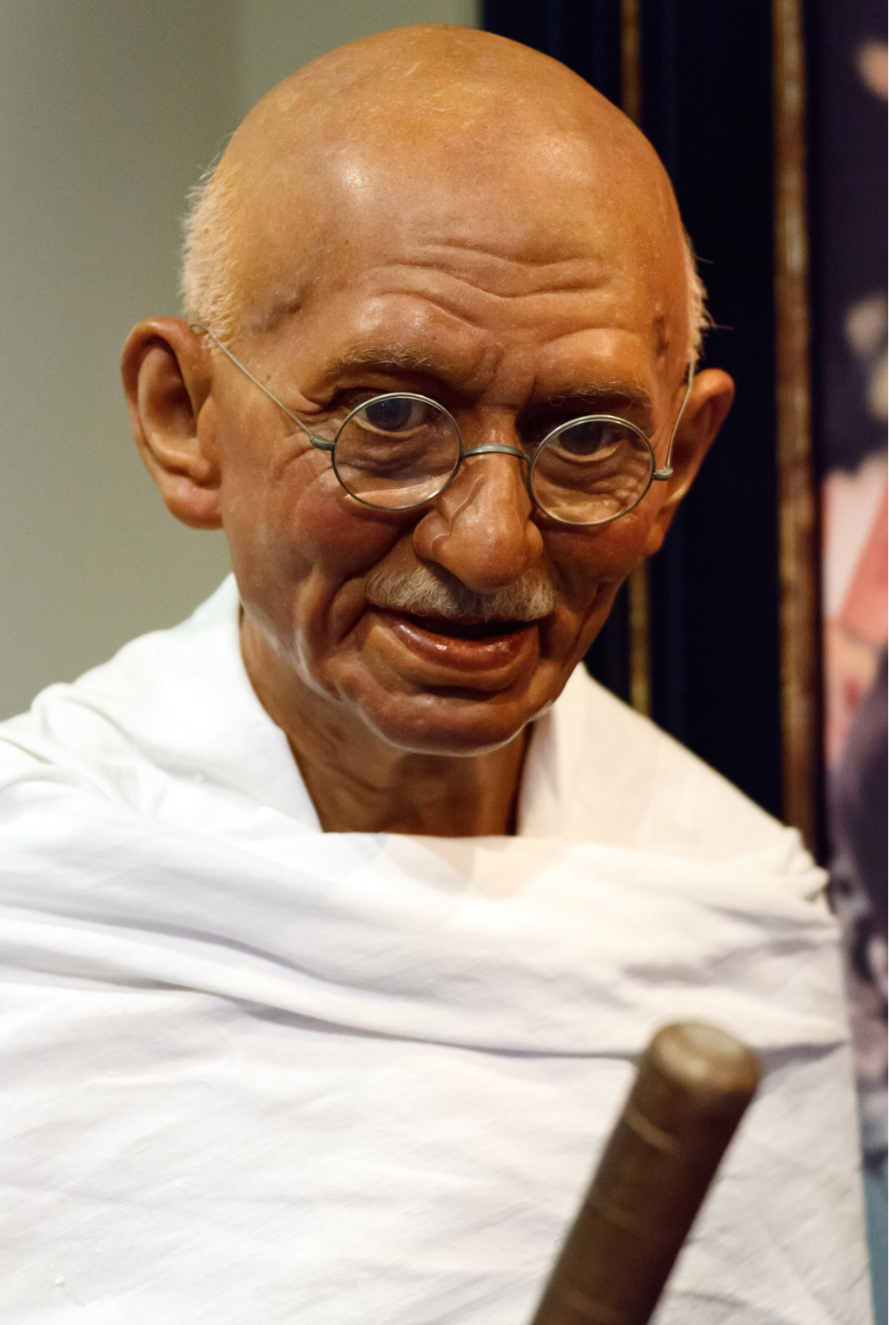
Gifts and Strengths of One
We can look at the gifts and strengths of type One with appreciation for the Ones in our life and as something we can develop in ourselves. Ideally, we want to have flexibility and be able to access the gifts and strengths of all nine personality types when they are called for in the situation.
The gifts and strengths of each type are found at the healthy levels of the personality. Here the person is closer to their essence and their gifts and strengths express the essential quality. For the One this means their sensitivity to goodness and perfection underlies their strengths.
Responsible, Disciplined
Ones are responsible people. They see what needs to be done and do it. They don’t slack or shirk. They have high standards of quality, they are conscientious. They tend to have good habits like being punctual, not procrastinating, being organized. Ones live with self-control and discipline. They take care of their health, eat a proper diet and exercise - for example, they may be regulars at the gym or adhere to a regimen. Ones usually have upright posture and look well-put together. They are polite and careful in their words.
Let’s look below the surface of these behaviours - what gives Ones the discipline to fulfill their responsibilities and follow through on all these good habits? It’s more than sheer willpower - it is an inner compass.
How do most of us know our responsibilities? They may be assigned, as in a job. Then being responsible means getting our assigned duties done. Responsibility may also be assumed - when we choose to take on a responsibility. If we have children, we assume responsibility for their care.
Knowing our responsibilities and taking care of them is an aspect of adulthood. Parents train their children to be responsible by giving them tasks and chores with the aim of the child eventually becoming self-disciplined. As adults, we tend to our many responsibilities as a matter of course.
Taking responsibility is so fundamental to how society functions that we rarely think about it, other than occasionally to notice the irresponsibility of others. But what is the true meaning of being a responsible adult?
For our purpose of understanding the strength of a One, we might flip this and ask what makes a One more willing to take responsibility? It seems there is an intrinsic motivation to be good and do the right thing that is not dependent on what others in the group do or whether they will be held accountable.
There is a concept in social psychology known as “diffuse responsibility,” the phenomenon that an individual is less likely to take responsible action when part of a larger group. This is also known as the “bystander effect”. The fact of this phenomenon is proven, but the reason is more a matter of speculation. It may be that we don’t act because we think someone else will or that we don’t believe we will be held personally responsible because others are present.
This is no small matter. Diffusion of responsibility is said to explain horrifying incidents like the rape and murder of Kitty Genovese in New York in 1964 when 38 people reportedly watched the attack for 30 minutes and no one called for help or tried to assist. Diffusion of responsibility has also been used as a defence by perpetrators of war crimes such as the My Lai massacre in the Vietnam war and by Nazis on trial at Nuremburg. Seemingly individuals did not feel guilty or take responsibility because they were “following orders” and they were part of a large group.
On a lesser scale, slacking at work or “social loafing” is associated with diffusion of responsibility. People don’t work as hard in a collective group as they do individually.

Stephen Covey, considered to be a One, became famous for his 1989 book The Seven Habits of Highly Effective People. While the Seven Habits themselves have a One flavour, it is his philosophy of “character” that is most interesting. Covey studied the 200-year history of “success literature” and found that the first 150 years had focused on the “Character Ethic” as the foundation of true success- things like integrity, humility, fidelity, temperance, courage, justice, patience, industry, simplicity, modesty and the Golden Rule. In contrast, Covey found that in the literature from the last 50 years, the advice for achieving success had been superficial and filled with “social image consciousness, techniques and quick fixes” that left acute problems unsolved and festering (surely this must only be more true in the 25 years since Covey wrote).
Covey argued that while “techniques” for success can have value, there is manipulation, lack of trust and duplicity in using superficial techniques without character. He concluded that “only basic goodness gives life to technique.” Covey’s insight seems to put a finger on the source of so many modern ills that have brought us to the brink of destruction- we have lost the foundation of basic character and goodness.
Here is the gift of the healthy One - they are responsible and disciplined because they are operating from inner character and motivated by basic goodness.
Consider this inspirational photo of August Landmesser in a sea of Nazi salutes- clearly a man with a conscience, an inner moral compass.
Full of Integrity, Ethical, Moral
Closely related to being responsible is the One strength of living according to their morals- they are principled, ethical, honest and full of integrity. Ones don’t want to follow the crowd, cut corners, or go with what’s expedient. In an environment of slippery practices or unethical behaviour they will feel very uncomfortable, they may leave or speak up. Famous whistle blowers are often Ones.
The definition of conscience is “the inner sense of what is right or wrong in one's conduct or motives, impelling one toward right action”. Ones have a highly developed inner sense of right and wrong and feel impelled toward right action.
Ones are called The Reformer because they like to improve conditions according to their ethical standards and ideals.
The 2006 movie An Inconvenient Truth is a portrait of a One- Al Gore on a world tour to raise awareness about climate change before it was widely accepted, lugging his presentation around the world. He presented his slideshow over 1,000 times. You can watch the movie online or just watch the trailer to hear Gore say the climate change issue “is not a political one but a moral one.” Imagine the dedication and motivation required to embark on this tour now credited with reviving the environmental movement and raising the alarm on global warming. You can see Gore is on a crusade.
Greta Thunberg is also likely a One. If you watch her speeches online you can see her anger, her moral outrage, her incredible intensity, her crystal-clear understanding. She often says the climate crisis is black and white, there is no grey. She basically puts us all to shame.
“You have stolen my dreams and my childhood with your empty words. And yet I’m one of the lucky ones. People are suffering. People are dying. Entire ecosystems are collapsing. We are in the beginning of a mass extinction, and all you can talk about is money and fairy tales of eternal economic growth. How dare you!”
Ghandi is a famous exemplar of One. The 1982 movie Gandhi is well worth watching if you haven’t seen it, or worth watching again, and there are also clips online. Gandhi led nationwide campaigns in India against poverty, for women's rights, fighting religious enmity, ending untouchability and achieving self-rule from the British. He lived simply and went on long fasts as a means of protest. Gandhi is best known for his method of non-violence- he was willing to starve himself to death. His power came from his morality.
“Gandhi’s hands were extraordinarily clean. Furthermore, his moral rigor was not incidental to his success as a reformer, but integral to it. The life of Gandhi is thus of special interest for the moral philosopher, as an object lesson in the union of ethics and politics, of right and power.”
Gandhi said he was no saint; he was simply a human being. He said his ideas were as old as the hills. If we imagine someone as a saint, we may miss their inspirational humanity- and not appreciate the moral rigor and effort behind their actions.
The inspirational gift of One is to know what’s right and to do what’s right.
Purpose, Values
Ones have a sense of mission or purpose in their lives. Ones like to live and work in environments that correspond to their values and may often be found working in organizations with a higher mission, such as non-profits. Ones will also look for purpose within whatever environment they find themselves. They like to teach, work for improvements, bring quality control. They will be the voice for an organization’s values, quality, and mission in any decision. If they can’t find a higher purpose in their day job, Ones may express this in their families, volunteer work, or in their community.
Most of us would like to know our purpose and fulfill it in our lives, the idea of having a personal purpose in life is popular today. Exercises for discovering your purpose abound- just google life purpose. You have probably done such exercises, maybe you know your purpose or mission. But for most of us discovering our purpose may be somewhat theoretical and the work we do may be far from our ideal. Most of us compromise or avoid the hard choices we might have to make if we let our purpose govern our lives.
At their best, Ones make their sense of purpose a North star, an orientation to living “on purpose” that is fundamental. Put another way, they don’t want to live or work in a way that is out of alignment with their values or purpose. Of course, not all Ones are able to work in their perfect job and they face the same practicalities as everyone, but there is a sense of idealism within them.
Ones usually resonate with the song The Impossible Dream from Man of La Mancha- it’s best to listen to the song but here are the lyrics:
It is the mission of each true knight...
His duty... nay, his privilege!
To dream the impossible dream,
To fight the unbeatable foe,
To bear with unbearable sorrow
To run where the brave dare not go;
To right the unrightable wrong.
To love, pure and chaste, from afar,
To try, when your arms are too weary,
To reach the unreachable star!
This is my Quest to follow that star,
No matter how hopeless, no matter how far,
To fight for the right
Without question or pause,
To be willing to march into hell
For a heavenly cause!
And I know, if I'll only be true
To this glorious Quest,
That my heart will lie peaceful and calm
When I'm laid to my rest.
And the world will be better for this,
That one man, scorned and covered with scars,
Still strove, with his last ounce of courage,
To reach the unreachable stars!
For Ones the higher purpose of life feels like a “quest” or mission. It’s interesting that the definition of the word mission is “an important goal or purpose that is accompanied by strong conviction”. The One’s natural sense of inner conviction makes it more likely they will pursue their mission in life.
Our values are also something we are encouraged to know and live by today, and you may have done a values discovery exercise before. If not, there are many great resources online.
Values are a key element in Richard Lieder’s formula for life purpose: Gifts + Passions + Values = Calling.
This is another way of understanding how Ones are naturally oriented to their purpose- they know and live their values. While basic universal values include One qualities like honesty, fairness and integrity, Ones also have a sense of their personal values- what matters to them- such as the environment for Greta Thunberg.
So, we could say that knowing their values and purpose, plus conviction, creates the admirable strength Ones have of living with a sense of mission.

Organization, Orderliness
Here is a fun strength of Ones – they are organized and orderly people. Ones are acutely aware of how they spend their time. They have “to do” lists. They do not like to waste time or procrastinate. They will go over how they spent their day in their minds and feel good if they got through their “to dos”, their many duties and responsibilities.
Here is a fun example of how a One might begin their day - making their bed. Making your bed as a daily habit is extolled online and studies apparently correlate this habit with productivity for the rest of the day. There is even a whole book entitled
“Make Your Bed: Little Things That Can Change Your Life…and Maybe the
World” by retired U.S. Navy Admiral SEAL William H. McCraven.
Are you familiar with “The Life Changing Magic of Tidying Up” by Marie Kondo? Her method relates tidying and organizing to a way of living your life well. Check out the KonMari method online- did you know there is a correct way to fold underwear?
After the birth of her third child Kondo said that her house is “messy” now and she has had to relax her standards of tidiness- but she still focuses on daily habits that bring her joy. She is also teaching her children how to fold clothes.
Martha Stewart, also a One, built her famous brand on the art of household organization calling it “a good thing”. Martha also relates being organized and tidy to living a more enjoyable life.
There is something appealing about getting organized- we can all probably relate to finding the energy to tackle a project by first cleaning our desk or workspace. On a deeper level, taking the time to reflect on what needs to be done, prioritizing and working our way through a to-do list is a skill for organizing life- deciding what’s important, choosing consciously what to do with our time and accomplishing more. This is really a practical strength that flows from being disciplined, responsible and good.
If you don’t love organizing and tidying up, there is always the spoonful of sugar approach. Mary Poppins must be a One because she is Practically Perfect in Every Way!















